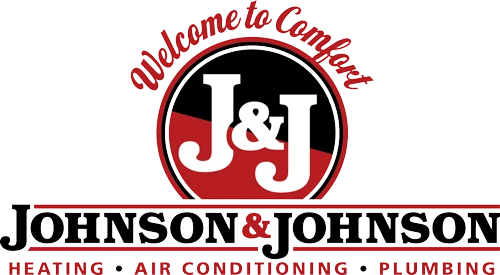There’s nothing worse than hearing your furnace shut off mid-cycle. If your heating system experiences this problem, appropriately called “short cycling,” it’s important to get to the bottom of this issue as soon as possible. This way, you can ensure your family is safe and comfortable on the coldest days.
The unfortunate truth is that there can be many reasons why your furnace is short cycling. Sometimes this problem is easy to fix. However, there are some instances where a professional repair or replacement might be necessary.
Let’s discuss the potential reasons why your furnace keeps turning on and off.
Thermostat Problems
When your furnace keeps turning on and off, you might want to consider looking at your thermostat first. You could be dealing with a faulty thermostat that needs to be replaced. Alternatively, your thermostat could be located too close to a heat source, causing it to misread the temperature inside your home.
Incorrect Furnace Size
Believe it or not, a poor installation could be why your furnace is short cycling. Whether you have a heating or air conditioning system installed, it’s important to work with an HVAC professional that will properly size the system for your needs. You don’t want to install a system that’s too small or too large, as this can lead to poor efficiency and ineffective heating.
If a technician installed a heating system that’s too large, this could cause the furnace to short cycle, as your home will be bombarded with warm air too quickly. Unfortunately, this constant start-stop cycle can seriously affect your furnace, leading to extensive wear and tear. Eventually, you may find yourself needing furnace repairs to remedy the damage.
Restricted Airflow
If your furnace keeps turning on and off, you could also be dealing with restricted airflow coming and going from the unit. Dirty air filters and blocked air vents can lead to insufficient airflow. When the airflow becomes limited, this can cause the heat exchanger to overheat — and the furnace will likely shut down as a consequence.
An overheating furnace is no laughing matter. This particular problem can result in serious damage that requires costly repair.
Dirty Flame Sensor
If you have a gas furnace, then you’re probably grateful for its flame sensor — even if you don’t know it. Essentially, your furnace’s flame sensor is a safety device that detects whether or not a flame is present. If the sensor doesn’t detect a flame, it will shut off the furnace to prevent gas from leaking into your living spaces.
Flame sensors are critical to ensure your furnace is working properly. Unfortunately, this component can become dirty over time, thus being one of the potential reasons why your furnace is short cycling. When the sensor becomes covered in grime, this can cause it to malfunction and shut off your heating system.
Damaged Flue
Your gas furnace has an exhaust valve called a “flue” that’s responsible for venting combustion gases from the unit. Unfortunately, this flue can get clogged with various objects, such as a bird’s nest, leaves, and other types of outdoor debris.
If your furnace keeps turning on and off, a damaged or clogged flue could be to blame. Although this problem can result in a short-cycling furnace, it can also lead to other concerns. You’ll want to address the problem as soon as possible to avoid dangerous carbon monoxide leaks in your home.
Contact the Experts for Your Heating Needs!
Hopefully, this guide has made it easier for you to know why your furnace is short cycling. As you can see, there are many potential reasons why this issue can occur, so you may need to do a little troubleshooting before you find the root cause of the problem.
If your furnace keeps shutting off, turn to Johnson & Johnson Heating and Air Conditioning! We offer many services for heating systems, from furnace replacements to heat pump repairs, to meet your needs. We’re proud to help keep the residents of Martinsburg, WV, and beyond as warm and comfortable as possible.
Don’t put off an HVAC installation in Frederick, MD, or the surrounding areas any longer. Contact us today to schedule an appointment.













